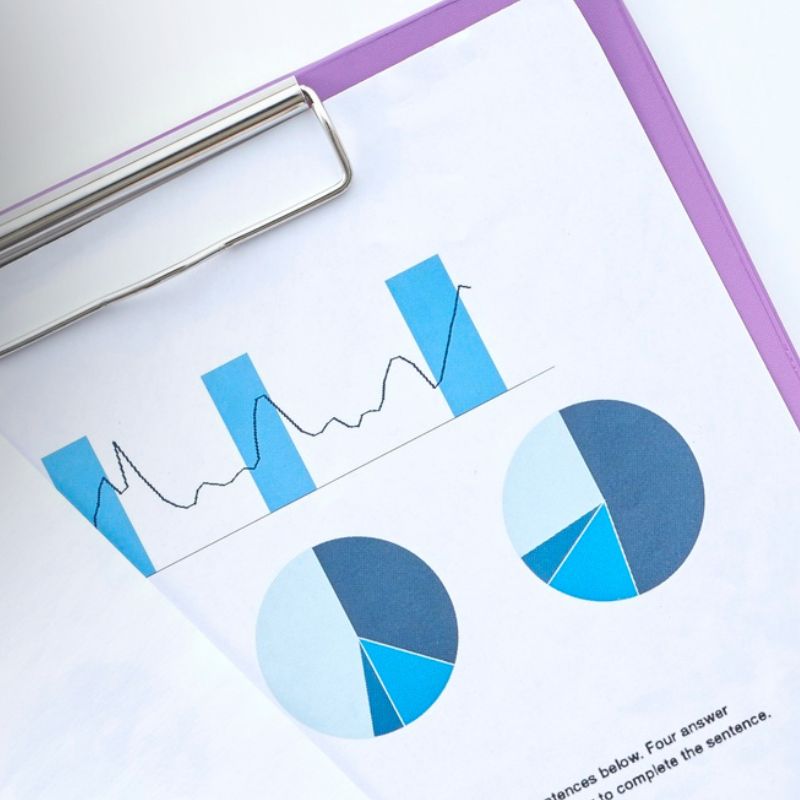In today’s fast-paced and data-driven world, companies no longer make decisions based on instinct or guesswork. Instead, data analysis has become the backbone of strategic planning and operational excellence. As we move through 2025, the importance of leveraging data to guide business decisions has never been more critical. Whether you’re a small business owner or part of a global enterprise, understanding how to harness the power of data can give your organization a competitive edge.
This article explores how data analysis can improve business decisions in 2025, highlights the most important tools in the industry, and discusses the broader impact of analytical thinking on organizational growth.
Why Data Analysis Matters More Than Ever
Businesses today generate an overwhelming amount of data—sales numbers, customer interactions, website metrics, social media insights, supply chain reports, and more. Without proper analysis, this information is meaningless. Data analysis transforms raw data into actionable insights that empower decision-makers to

Identify market trends
Improve operational efficiency
Optimize customer experiences
Mitigate risks
Forecast future performance
In 2025, with the rise of artificial intelligence (AI), machine learning, and cloud-based technologies, data is more accessible and powerful than ever before. But the real value lies not in the data itself, but in how it’s interpreted and applied.
How Data Analysis Improves Business Decisions
1. Enhanced Decision-Making Speed
Data analysis enables faster decision-making by providing real-time insights. Instead of waiting weeks for reports, businesses can now access dashboards that update instantly. This agility helps leaders react quickly to market changes and make informed decisions on the fly.
2. Reduced Guesswork
Gut feeling used to play a major role in business strategy. But in 2025, data-driven decisions reduce the guesswork. Whether launching a new product or entering a new market, companies can now test assumptions with actual data before committing resources.
3. Increased Efficiency
Data analysis highlights inefficiencies in operations. For example, a retailer can identify which stores are underperforming, which inventory isn’t moving, and which advertising campaigns are underdelivering. By targeting these areas, businesses cut costs and boost productivity.
4. Better Customer Understanding
Today’s consumers expect personalized experiences. With data analysis, companies can segment their audiences based on behavior, preferences, and purchasing patterns. This allows for tailored marketing, better product recommendations, and increased customer loyalty.
5. Accurate Forecasting and Trend Analysis
Forecasting models powered by data analytics can predict sales trends, customer demand, and supply chain disruptions. This allows businesses to plan ahead, avoid shortages or overstock, and maintain smooth operations.
Key Data Analysis Tools for 2025
1. Microsoft Excel
Still a powerhouse in 2025, Excel is used by professionals for data cleaning, pivot tables, and quick analyses. While it may lack advanced visualizations, its accessibility and compatibility make it a reliable tool for basic data work.
Best for: Beginners, quick calculations, data exploration
New features in 2025: AI-powered functions, improved collaboration, seamless Power BI integration
2. Power BI
Power BI continues to lead the market for business intelligence. With its interactive dashboards, real-time analytics, and integration with Microsoft tools, it’s a top choice for many organizations.
Best for: Interactive dashboards, business reporting, team collaboration
Strength: Excellent integration with Microsoft 365, robust data modeling
3. Tableau
Tableau stands out for its advanced data visualization capabilities. In 2025, its AI enhancements make it even easier to identify trends and share insights across departments.
Best for: Stunning data visuals, storytelling with data, enterprise-level analysis
Strength: Connects with almost any data source, drag-and-drop interface
4. Google Looker Studio (formerly Data Studio)
Looker Studio remains a cost-effective and flexible option for small to mid-sized businesses. It works well with Google products and is ideal for marketing analytics.
Best for: Web traffic, SEO metrics, and marketing performance dashboards
Strength: Free to use, integrates with Google Analytics, Ads, Sheets
5. Python and R
For data scientists and analysts needing deeper statistical modeling and machine learning, Python and R are the go-to languages. Libraries like Pandas, Scikit-learn, and ggplot2 help build powerful analytical applications.
Best for: Predictive modeling, custom analytics, automation
Strength: Open-source, scalable, vast community support
Ethical and Strategic Considerations in Data-Driven Decisions
As businesses grow increasingly reliant on data, it’s vital to consider how these decisions affect stakeholders, employees, and society at large.
1. Data Privacy and Security
With great data comes great responsibility. Companies must safeguard user data and ensure compliance with privacy laws like GDPR and CCPA. Transparent data handling builds trust with customers.
2. Bias and Fairness
AI and machine learning models can unintentionally reinforce biases present in training data. Businesses must audit algorithms and decision-making processes to promote fairness and inclusivity.
3. Sustainability and Social Impact
In 2025, businesses are being held accountable for their environmental and social impact. Data analytics can help measure carbon footprints, monitor supply chain ethics, and assess corporate social responsibility (CSR) initiatives.
4. Employee Upskilling
Data-driven transformation is only successful when employees can keep up. Investing in training and upskilling ensures that teams can interpret and act on data insights effectively.
Making Data Analysis Work for Your Busines
Here are practical tips for businesses looking to leverage data analysis effectively:
- Start with clear goals: Know what problem you’re trying to solve.
- Choose the right tools: Match tools to your business size, needs, and technical expertise.
- Invest in talent: Hire or train analysts who understand your industry.
- Create a data culture: Encourage all departments to use data, not just IT or finance.
- Focus on visualization: People make better decisions when they can see patterns clearly.
- Ensure data quality: Clean, accurate data is the foundation of reliable analysis.
- Track ROI: Measure how data initiatives contribute to revenue, cost savings, or customer satisfaction.
Get Your CV Ready for Free to Launch Your Data Analyst Career
What the Future Holds for Data-Driven Businesses
Looking ahead, the integration of AI, machine learning, and automation into business intelligence platforms will redefine how decisions are made. Real-time analytics, predictive insights, and natural language queries will become the norm. Organizations that embrace these changes will not only stay ahead of competitors but also drive innovation within their industries.
As consumers become more digital-savvy and expectations evolve, data analysis will be the linchpin for adapting to change, seizing new opportunities, and building resilient business models.
Best Posts to Learn Data Analytics
- Top 5 Data Analysis Techniques You Need to Know in 2025
 Data analysis is the backbone of modern decision-making. In 2025,
Data analysis is the backbone of modern decision-making. In 2025, - How Data Analysis Can Improve Business Decisions in 2025?
 In today’s fast-paced and data-driven world, companies no longer make
In today’s fast-paced and data-driven world, companies no longer make - Unlock Your Data Analyst Career with the Power of Self-Directed Learning
 Data Analyst Career opportunities are rapidly expanding in today’s data-driven
Data Analyst Career opportunities are rapidly expanding in today’s data-driven
Final Thought
Data analysis is no longer optional—it’s a necessity in 2025. From improving operational efficiency to understanding customers and forecasting trends, data empowers businesses to make smarter, faster, and more ethical decisions.
With the right tools—like Excel, Power BI, and Tableau—and a strong data culture, any organization can unlock the potential hidden within their data. As we move forward, businesses that prioritize data-driven strategies will be better equipped to adapt, compete, and grow.
What is data analysis and why is it important for business decisions in 2025?
Data analysis involves examining, cleaning, and interpreting data to uncover useful insights. In 2025, it’s essential for making informed business decisions, identifying trends, improving customer experiences, and staying competitive in rapidly evolving markets.
What are the best tools for data analysis in 2025?
Some of the top tools include Microsoft Excel (for basic analysis), Power BI and Tableau (for interactive dashboards and visualizations), Google Looker Studio (for marketing data), and programming languages like Python and R (for advanced analytics and automation).
How can small businesses benefit from data analysis?
Small businesses can use data analysis to understand customer behavior, optimize inventory, measure marketing ROI, and make more confident decisions without needing a large budget. Many tools like Excel, Google Looker Studio, and even free versions of Power BI are accessible and affordable.
What are the ethical concerns with data-driven decision-making?
Key concerns include data privacy, algorithmic bias, and transparency. Businesses must ensure they collect and use data responsibly, comply with data protection laws, and maintain fairness in automated decision-making processes.
Can I use data analysis without a technical background?
Yes, many modern tools like Power BI, Tableau, and Looker Studio are designed with user-friendly interfaces that don’t require coding skills. Additionally, online courses and tutorials make it easier than ever to learn the basics and apply them to real business problems.

